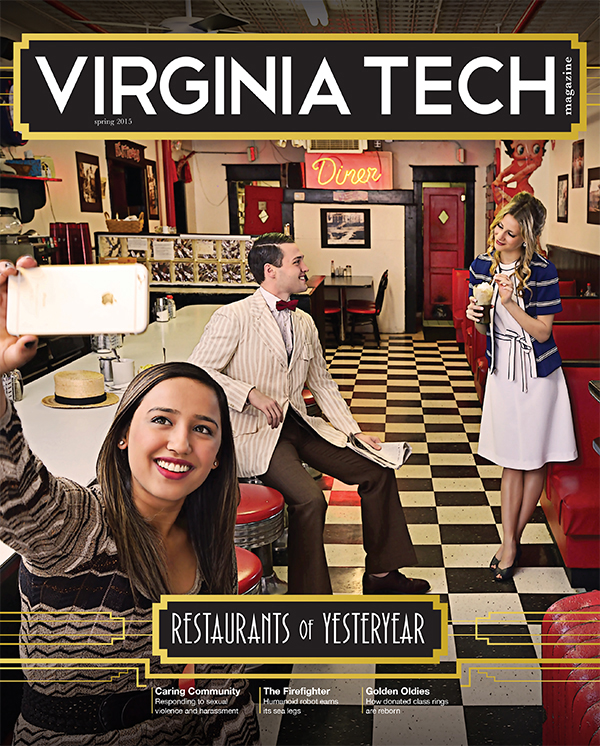Virginia Tech Magazine revisits favorite Blacksburg restaurants and examines the university’s response to sexual misconduct in latest edition

Because Virginia Agricultural and Mechanical College — today's Virginia Tech — opened in 1872 without a dining hall, cadets took their meals at the nearby Blacksburg Hotel. Since that beginning, Hokies have held Blacksburg-area restaurants close to their hearts.
In its spring 2015 edition, Virginia Tech Magazine delves into the history of the university community's most-loved restaurants of the past, along with the science of why alumni remember these establishments so fondly.
The spring edition also includes these articles and features:
- In recent months, how colleges and universities handle matters of sexual violence and harassment has come under great scrutiny. At Virginia Tech, faculty, staff, and students continue their work to reshape cultural perspectives and involve the broader community in protecting all Hokies.
- With millions of dollars in research funding on the line, Virginia Tech's Shipboard Autonomous Firefighting Robot (SAFFiR) passed a tension-filled test last November in Mobile, Alabama, by successfully locating and dousing a small fire on a decommissioned U.S. Navy training ship.
- In 2014, Atlantic Coast Conference (ACC) Freshman of the Year Joey Dance became Tech wrestling's first true freshman to earn All-American honors. After picking up three ACC wins during a special three-match stretch in the Moss Arts Center in early March, Dance talked with the magazine about the sport and competing on stage.
- And the latest installment of How Tech Ticks tours VT-FIRE (Virginia Tech Foundry Institute for Research and Education) to learn how decades-old class rings are melted down and incorporated into new class rings for the Alumni Association's Hokie Gold Legacy Program.
The Web version of Virginia Tech Magazine features online-only multimedia content. Hard copies of the magazine can be requested by emailing Jesse Tuel, magazine editor.
Dedicated to its motto, Ut Prosim (That I May Serve), Virginia Tech takes a hands-on, engaging approach to education, preparing scholars to be leaders in their fields and communities. As the commonwealth’s most comprehensive university and its leading research institution, Virginia Tech offers 240 undergraduate and graduate degree programs to more than 31,000 students and manages a research portfolio of $513 million. The university fulfills its land-grant mission of transforming knowledge to practice through technological leadership and by fueling economic growth and job creation locally, regionally, and across Virginia.















